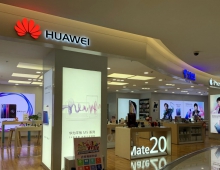
T-Mobile to Face Landmark Lawsuit in California
The practice of locking cell phones to a specific carrier is heading for court in the US. The California Supreme Court has given the go-ahead to a lawsuit that targets T-Mobile for the practice, after the company had tried to get the suit dismissed.
The class action lawsuit, filed by Bruce Gatton and Christina Nguyen, also addresses the carrier's required early termination fees. If they succeed in court, the decision could carry some ramifications not just within California, but throughout the rest of the country. Perhaps more importantly to many Apple fans, it could also affect the iPhone.
The suit asks for an injunction against T-Mobile, barring it from charging the $200 early termination fee to customers who choose to exit their contracts early. The plaintiffs also seek an order that would force the carrier to unlock the handsets that it sells so that customers can take them to other carriers. T-Mobile had originally asked for the suit to be thrown out, arguing that its terms of service agreement required customers to go through arbitration with a neutral mediator before taking the case to court.
The plaintiffs fought back against the motion, however, claiming that their cases were not arbitrable under the Unfair Competition Law and the state's Consumer Legal Remedies Act. T-Mobile lost the motion to compel arbitration because the trial court felt that the request for injunctive relief was for the benefit of the public, and also that the clause to arbitrate the unlocking claim was unconscionable. T-mobile eventually appealed the decision to the California Supreme Court, but the seven-judge panel wouldn't hear it.
The California Supreme Court's ruling means that the case will likely go to trial, where T-Mobile will have to duke it out with some undoubtedly angry customers. And the outcome will matter to many more: if the case goes in favor of the plaintiffs, carriers in the US?or at least in California?will likely be forced to offer to unlock all handsets sold to the public and drop early contract termination fees.
The practice of locking phones to a carrier has been a hot topic among gadgetphiles lately due to a number high-profile lawsuits against Apple over the same issue. Two class action suits targeting the iPhone-AT&T lock-in were filed this month in California, both pointing out that major carriers are often willing to provide unlock codes for handsets after a certain period of time with the carrier?something that AT&T refuses to do for the iPhone. It is (reasonably) speculated that the strict lock-down of the iPhone to AT&T is due to the rumored revenue-sharing agreement between the two companies, which benefits everyone involved but the consumer.
Assuming T-Mobile loses its case, it could set in motion a chain of events that could result in unlocked iPhones floating around the state of California. And if they're in California, it won't be long before they make their way out to the rest of the US, or the world. With at least one House committee rooting for the abolishment of anticompetitive lock-ins, pressure is building on the cellular carriers' phone lock-in practices.
The suit asks for an injunction against T-Mobile, barring it from charging the $200 early termination fee to customers who choose to exit their contracts early. The plaintiffs also seek an order that would force the carrier to unlock the handsets that it sells so that customers can take them to other carriers. T-Mobile had originally asked for the suit to be thrown out, arguing that its terms of service agreement required customers to go through arbitration with a neutral mediator before taking the case to court.
The plaintiffs fought back against the motion, however, claiming that their cases were not arbitrable under the Unfair Competition Law and the state's Consumer Legal Remedies Act. T-Mobile lost the motion to compel arbitration because the trial court felt that the request for injunctive relief was for the benefit of the public, and also that the clause to arbitrate the unlocking claim was unconscionable. T-mobile eventually appealed the decision to the California Supreme Court, but the seven-judge panel wouldn't hear it.
The California Supreme Court's ruling means that the case will likely go to trial, where T-Mobile will have to duke it out with some undoubtedly angry customers. And the outcome will matter to many more: if the case goes in favor of the plaintiffs, carriers in the US?or at least in California?will likely be forced to offer to unlock all handsets sold to the public and drop early contract termination fees.
The practice of locking phones to a carrier has been a hot topic among gadgetphiles lately due to a number high-profile lawsuits against Apple over the same issue. Two class action suits targeting the iPhone-AT&T lock-in were filed this month in California, both pointing out that major carriers are often willing to provide unlock codes for handsets after a certain period of time with the carrier?something that AT&T refuses to do for the iPhone. It is (reasonably) speculated that the strict lock-down of the iPhone to AT&T is due to the rumored revenue-sharing agreement between the two companies, which benefits everyone involved but the consumer.
Assuming T-Mobile loses its case, it could set in motion a chain of events that could result in unlocked iPhones floating around the state of California. And if they're in California, it won't be long before they make their way out to the rest of the US, or the world. With at least one House committee rooting for the abolishment of anticompetitive lock-ins, pressure is building on the cellular carriers' phone lock-in practices.





















